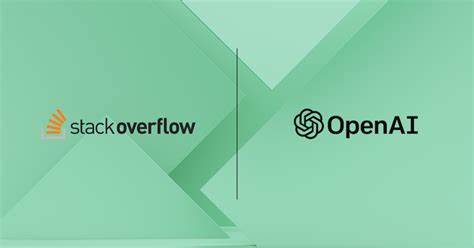Introduction
As an expert software developer and AI enthusiast, I’ve been both amused and amazed at the progress of artificial intelligence (AI) in the realm of programming. The power of AI has gradually moved from the realm of science fiction to everyday reality, shaping the way we write, review, and optimize code. It’s like having a co-pilot, an intelligent companion assisting us as we navigate the complex world of programming. Welcome to the era of AI CoPilots!
How AI Copilots Work with Large Language Models to Write Code
AI CoPilots are revolutionizing the way we write code, thanks to the integration of large language models.
Understanding Large Language Models
Large Language Models (LLMs) like OpenAI’s GPT-3 and Codex are trained on a vast corpus of text from the internet. They generate human-like text based on the input they receive. When integrated into an AI CoPilot system, these models can understand coding queries and generate relevant code snippets.
The Magic Behind the Scenes
For instance, when a programmer types a comment like “create a function to sort a list,” the AI co-pilot interprets this and generates a function in the language the programmer is using. It’s not magic but an intricate dance of pattern recognition, context understanding, and language generation.
The Most Popular AI CoPilot Coding Tools Today
There are several AI CoPilot coding tools in the market today. However, two stand out due to their integration with popular coding platforms and their adeptness at generating code.
GitHub Copilot
GitHub Copilot, powered by OpenAI Codex, has emerged as a favorite among developers.
Copilot in Action
GitHub Copilot suggests lines or blocks of code as you type, essentially predicting what you might want to write next. It works directly in your editor and supports a plethora of programming languages.
The Experience
The experience of using GitHub Copilot is akin to pair programming with a colleague who has an encyclopedic knowledge of code and can generate snippets in real-time, making coding faster and more efficient.
CodeGPT
Another powerful tool making waves in the AI CoPilot space is CodeGPT.
CodeGPT Explained
Built on OpenAI’s GPT-3 model, CodeGPT extends the natural language understanding of GPT-3 to the world of code. It can interpret natural language instructions and convert them into functional code.
The CodeGPT Experience
With CodeGPT, you can describe the logic you want to implement, and it will suggest relevant code. It’s like having a fluent bilingual assistant who can translate your English instructions into Python, JavaScript, or any other language it’s proficient in.
What Can You Do with AI Code Copilots?
AI code copilots, such as OpenAI Codex or GitHub Copilot, are game-changers in the programming world. They are AI-powered tools designed to assist developers by generating code snippets, writing tests, and even optimizing performance. These copilots make coding more efficient, less error-prone, and more accessible to a broader audience. This article will delve into the potential of AI code copilots, their current applications, and the future they hint at in the realm of programming.
AI-Assisted Code Completion
Saving Time with Intelligent Suggestions
AI-assisted code completion offers developers the incredible advantage of real-time code suggestions. These AI code copilots have been trained on billions of lines of code, enabling them to provide relevant suggestions for completing a line or block of code. This feature saves developers from the time-consuming task of writing repetitive or boilerplate code and reduces the cognitive load, allowing them to focus on the core logic of their applications.
Streamlining Development with Multilingual Support
Furthermore, AI code copilots are proficient in multiple programming languages. Whether it’s Python, JavaScript, or even Swift, developers can get assistance no matter their language of choice. This multi-language support not only saves time but also aids in learning and adopting new languages, making developers more versatile.
Unit Test Writing with AI
Enhancing Test Coverage
AI code copilots can also generate unit tests, a task often perceived as tedious and time-consuming. By suggesting tests based on the existing code, they ensure comprehensive test coverage, saving developers time while enhancing the robustness and reliability of the application.
Facilitating Continuous Integration
These AI tools can play a crucial role in a continuous integration/continuous deployment (CI/CD) environment where frequent code changes require regular unit testing. By automating test writing, AI code copilots allow for quicker iterations and faster, more reliable releases.
AI-Powered Performance Optimization
Identifying Performance Bottlenecks
AI code copilots can suggest performance improvements by identifying bottlenecks in your code. They can suggest alternate code structures or algorithms that could boost the performance of your application.
Promoting Best Coding Practices
AI code copilots can also promote best coding practices, such as suggesting the use of efficient data structures and algorithms, reducing memory usage, and optimizing CPU performance. They could act as both a teacher and a helper, reinforcing good habits while saving developers time.
Can You Build an Application Only with AI CoPilot?
AI CoPilot for Simple Applications
Yes, it is possible to build a simple application solely with an AI code copilot. It can generate the necessary code, write tests, and even help optimize performance. This makes it an excellent tool for beginners or those looking to prototype an application quickly.
Limitations in Complex Business Applications
However, when it comes to complex business applications, AI code copilots currently have limitations. They may struggle with understanding the specific business context or intricate system interactions. Moreover, while they are improving, they can still occasionally suggest incorrect or suboptimal code.
The Road Ahead with AI Programming
AI as a Collaborative Partner
AI programming is poised to transform software development fundamentally. It will likely serve as a collaborative partner to developers, augmenting their capabilities and allowing them to focus on more creative and high-value aspects of their work.
Will AI Replace Human Programmers?
While AI programming tools are becoming increasingly powerful, they are unlikely to replace human programmers in the foreseeable future. They lack the human touch – the ability to understand nuanced requirements, make subjective judgments, and bring creativity to problem-solving. Instead, they will continue to evolve as indispensable tools that make programming more efficient and less error-prone.


